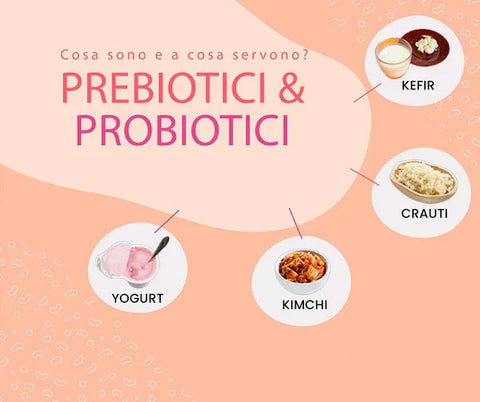Erythritol (E968), a relatively new sweetener, is used in various food products as a taste and texture inhibitor, flavour enhancer or thickening agent.
What is erythritol?
Erythritol is a polyol, or sugar alcohol, used as a low-calorie alternative sweetener.
It is found naturally in some fruits such as grapes and pears, but is also produced synthetically through the fermentation of glucose by specific yeasts.
Its peculiarity lies in the fact that it provides approximately 70% of the sweetness of common sugar (sucrose), but with almost no calories , since it is not significantly metabolised by the body.
This makes it a popular option for those on low-sugar diets or diabetics looking for alternatives with a lower glycemic impact.
Is Erythritol Bad for You? The Effects on Health and Metabolism
Erythritol is generally considered safe for human consumption and is absorbed in the small intestine and excreted in the urine without undergoing significant metabolic transformation.
Unlike other sweeteners, it does not appear to alter blood sugar levels or stimulate insulin secretion, making it suitable for diabetics.
However, recent studies have raised some concerns about the possible long-term effects . In particular, some researchers have suggested a link between high levels of erythritol in the blood and an increased risk of cardiovascular events, such as heart attack and stroke, probably due to its effect on platelet reactivity and blood clotting.
Although the use of nonnutritive sweeteners such as erythritol, aspartame, sucralose, and acesulfame has become widespread, few rigorous scientific reviews have evaluated the effects of these sweeteners on our bodies.
In fact, a recent review published in Endocrine Practice (AACE) titled "Artificial Sweeteners and Obesity - Not the solution and potentially a problem" argues that the arguments in favor of erythritol and other non-nutritive sweeteners are based primarily on thermodynamic considerations.
Despite growing scientific evidence that obesity and adiposity-related diseases are complex and cannot be explained in terms of pathophysiology alone.
How much erythritol instead of sugar?
One of the most interesting aspects of erythritol is its sweetening power, which is around 60-70% of that of traditional sugar, so to "feel" the same flavor as sugar you need to slightly increase the dose to a little more than a teaspoon.
Do sweeteners aggravate chronic diseases?
One of the main problems is that there are individual differences in the ability to process nutritional signals.
Few studies have examined how these differences in gender or disease predisposition may influence the effects of nonnutritive sweeteners.
Recent studies have shown that the use of non-nutritive sweeteners can worsen outcomes in patients with adiposity-related diseases such as hypertension, dyslipidemia, and diabetes.
Non-nutritive sweeteners alter gut microbiota
Furthermore, it has been found that chronic use of non-nutritive sweeteners can alter the gut microbiome.
Pushing the latter towards a more inflammatory model, regardless of weight or the presence of disease.
This finding is concerning and raises questions about the safety of long-term use of non-nutritive sweeteners such as erythritol.

Non-nutritive sweeteners alter the feeling of satiety
Even more worrying is the fact that numerous studies have highlighted long-term damage.
Both related to the neurohormonal control of satiety in subjects who consume non-nutritive sweeteners chronically.
This could have significant implications in the fight against obesity and adiposity-related metabolic diseases.
It is necessary to investigate further with long-term studies.
Therefore, we should not unreservedly accept the use of non-nutritive sweeteners such as erythritol based solely on a thermodynamic model and a false assumption that we are all biologically equal.
Long-term clinical studies are needed to investigate the effects of chronic erythritol consumption on body weight and the risk of developing metabolic diseases.
In conclusion, is this new sweetener safe?
Further research and studies are needed to better understand the effects of erythritol and other non-nutritive sweeteners on human health.
In the meantime, it is advisable to be cautious in the use of these sweeteners and try to reduce the intake of excess sugars and sweeteners, following a balanced diet and a healthy lifestyle.
Always consult a health professional or nutritionist before making any significant changes to your diet or lifestyle.
Artificial sweeteners like erythritol are widely used, but little is known about their long-term effects, especially regarding the risk of cardiometabolic disease. A recent study looked at the link between erythritol and the risk of serious heart disease, called major adverse cardiovascular events (MACE), such as heart attack and stroke.
Summary of a recent study on the correlation between erythritol and cardiovascular disease:
- Initial Study : In a study of 1,157 patients assessed for cardiac risk, high blood levels of erythritol were observed to be associated with an increased risk of MACE over the next three years.
- Confirmatory analysis : Subsequent studies in two other groups of patients (one of 2,149 people and the other of 833) confirmed that high erythritol levels were linked to a higher risk of serious cardiac events.
- Physiological effects : Laboratory tests have shown that erythritol increases the reactivity of platelets (blood cells involved in clotting), promoting the formation of blood clots.
- Human Study : In a small study of 8 healthy volunteers, ingestion of erythritol caused a significant increase in its blood levels, well above the thresholds considered dangerous for clot formation.
Conclusions
The findings suggest that erythritol is associated with an increased risk of serious cardiac events, and may also promote the formation of blood clots.
Therefore, further studies are needed to evaluate the long-term safety of erythritol, but until then, our advice will remain to use foods and supplements that are free of non-nutritive artificial sweeteners such as those from the swissnaturalmed line.


